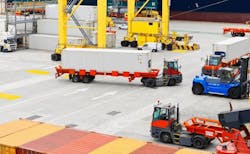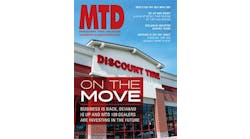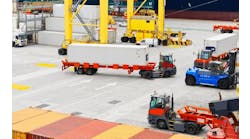Let’s say you’re a tire manufacturer faced with the prospect of tariffs. How do you prepare? Hankook & Co.'s recently published full-year 2020 report provides a glimpse into measures the company is taking.
This past December, the U.S. Department of Commerce (DOC) assigned preliminary, punitive dumping rates to a number of tire manufacturers that export passenger and light truck tires from South Korea, Taiwan, Thailand and Vietnam to the U.S. (Hankook is based in Seoul, South Korea.)
Hankook’s assigned rate is 38.07%, which also happens to be the highest rate in the South Korea grouping. (Here’s a look at other company’s rates.)
Hankook - which is the seventh largest tire manufacturer globally, in terms of new tire sales, according to MTD’s 2021 Facts Issue - identified three areas of focus: product relocation, protecting profitability and risk management.
“Product relocation” includes “diversification of production," according to the report. However, “a selection of strategic products” will continue to ship to the U.S. from Hankook’s manufacturing facilities in South Korea.
The next initiative, “protecting profitability,” also includes a manufacturing component, as Hankook disclosed that it plans to ramp up production at its five-year-old consumer tire plant in Clarksville, Tenn. (The facility has the capacity to produce 12,600 passenger tires and 1,300 light truck tires per day, according to MTD research.)
Hankook lists raising its “price position” as another measure that could be taken. An additional point in the “protecting profitability” category? Promoting “a method for sharing tariffs through individual consultation with automobile manufacturers.”
The third initiative outlined by Hankook is “risk management,” which the company, in its 2020 report, simply describes as striving “to minimize the dumping margin” for “administrative review.”
Hankook adds that it will continue “vigorous advocacy” until the DOC’s final antidumping determination, due three months from now.





